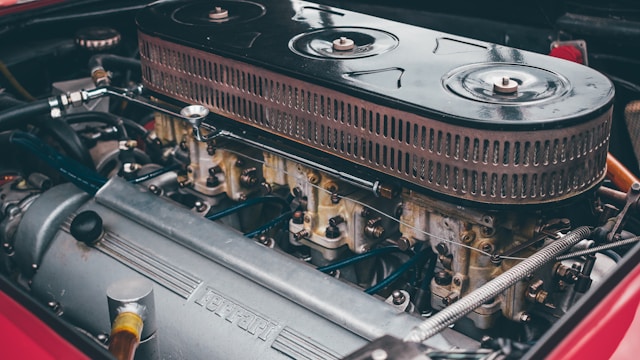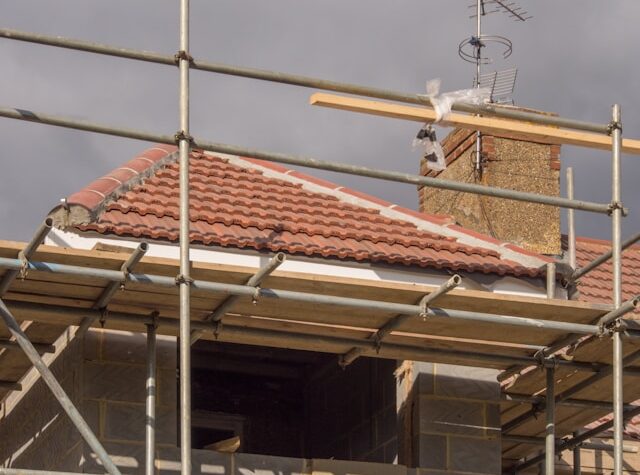
Key Takeaways:
- Hard water carries high levels of calcium and magnesium, leading to scale build-up and domestic inefficacies.
- A quality water softener shifts water from hard to soft via an ion exchange that removes these minerals.
- Using a water softener is a foundational enhancement for residents’ health and the longevity of the home’s water systems.
Table of Contents:
- Introduction to Well Water Softening
- The Science Behind Water Softening
- Comparing Well Water Softeners and City Water Treatment
- Well Water Softening and Your Home’s Plumbing
- Health Considerations with Well Water Softeners
- The Environmental Footprint of Water Softening Systems
- Cost-Benefit Analysis of Installing a Well Water Softener
- Selection Criteria for the Right Water Softener
Introduction to Well Water Softening
Consider the life-enhancing essence of water; it cleans us, hydrates us, and aids in cooking our nourishing meals. Yet, the quality of this vital resource directly impacts its ability to nourish our lives effectively. In many modern homes situated beyond the reach of municipal water systems, residents rely on healthy water—an inherently variable source. It’s here that the significance of water hardness comes into play. Whether manifesting as an annoying film on freshly cleaned glassware or as a silent detriment to water-bearing appliances, excess minerals—predominantly calcium and magnesium—define the term ‘hard water.’ This condition invites operational headaches into domestic realms and raises health considerations. Thus, understanding the role and functionality of systems utilized is essential for homeowners looking to safeguard their domestic water quality.
Let’s demystify how these systems function to grasp the magnitude of water softeners’ impact. Transitioning from hard to soft water is a transformative process, achieved through a water softener’s ion exchange mechanism that targets and removes the offending minerals. It’s an upgrade that doesn’t merely treat the symptoms, such as limescale build-up, but tackles the issue at its mineral core. Well-chosen water softeners Tampa system becomes less of an appliance and more of a long-term wellness investment for the household. Such an understanding lifts the veil on the benefits lurking behind every soft water stream that spills from our faucets, ready to enhance various facets of our day-to-day life, from personal care to the longevity of our homeware and plumbing.
The Science Behind Water Softening
The conceptual simplicity of the ion exchange process belies its profound impact on residential water quality. An intricate dance of chemistry plays out within the encasement of a typical water softener: a bed of resin beads infused with sodium ions greets incoming hard water. As the water flows through this medium, the magnesium and calcium ions, responsible for the hardness, are irresistibly attracted to and held fast by the resin. Sodium ions are released into the water in return, and because of their small ionic footprint, crystallization is prevented, affecting the longevity of appliances and the efficiency of plumbing systems. This exchange is seamless, effective, and central to a water softener’s functionality.
Concerns over environmental impacts often extend to the consideration of the type of salts used in the softening process. The more commonly used sodium chloride provides a cost-efficient choice for homeowners. Yet, those with environmental sustainability in mind may prefer potassium chloride, incorporating it into their water softening system, despite its premium pricing. As an added advantage, potassium, released into the wastewater, can be less harsh on local ecosystems, echoing the importance of environmental stewardship in our selections.
Comparing Well Water Softeners and City Water Treatment
Several myths persist amid the debate about healthy water versus municipally treated water. On one side, city water treatment plants are hailed for their rigorous standards and broad-scope solutions. Conversely, the personalized approach of well water softening systems must often receive the recognition it deserves. While municipal treatment plants focus on general standards fit for widespread consumption, individual well water systems can be tailored to address the granular needs of each household. Customized water softeners consider the precise mineral composition unique to a property’s water source, offering a degree of specificity and adjustment capability that large-scale municipal systems might not match.
Moreover, owning a bespoke water softening system gives the homeowner autonomy over water quality. Rather than being a passive recipient of treated water, one can be proactive, ensuring each drop used domestically has traveled through a personalized cleaning process conducive to optimal health and home care.
Well Water Softening and Your Home’s Plumbing
The unseen yet vital pathways of our home’s plumbing are ever at the mercy of the water coursing through them. Mineral-laden hard water acts as a slow poison, stealthily depositing scale within pipes, decaying fixtures, and compromising the efficacy of water heaters. Here, water softeners play an invaluable preventive role. By transmuting hard to soft water, they curtail the abrasive contact between water and metal, assuaging the corrosive cycle that afflicts untreated water systems. This action is a long-term blessing for a home’s plumbing integrity, conferring quieter operations and reducing the risk of unexpected repairs. This cumulative benefit ultimately results in considerable cost savings over time. Homeowners attuned to these details not only protect their investment but ensure the reliability and efficient operation of their household water systems well into the future.
When weighing the impact of a water softener, one must consider the machine itself and the comprehensive maintenance it provides. Aligning a well-managed water softening system with a meticulously planned plumbing framework paves the way for an enduringly harmonious and economical domestic water experience.
Health Considerations with Well Water Softeners
The discourse surrounding water softeners is complete with addressing the subtle yet significant health implications. While essential minerals are necessary for bodily functions, the disproportionate mineral content in hard water can disrupt this balance and is particularly problematic for sensitive skin and hair. Softened water, bereft of these excess minerals, can thus alleviate symptoms of dermatological conditions such as eczema, providing a gentler cleansing experience. Care must be taken, however, to ensure that while the water softening process addresses these excesses, it is balanced to prevent an outright deficiency of beneficial minerals typically present in natural water sources.
Equilibrium takes center stage in this aspect; awareness of and adjustments towards maintaining an optimal mix of mineral intake through diet or other sources becomes an imperative part of the health-conscious homeowner’s regimen. The nuanced approach to utilizing a water softening system goes hand in hand with an informed perspective on nutritional health and holistic wellness strategies.
The Environmental Footprint of Water Softening Systems
The conversation around the environmental implications of water softeners requires a nuanced understanding of their operation and the broader ecosystem effects. Often criticized for using salt and the resulting brine discharge, contemporary water softeners reflect significant advancements in reducing waste and conserving resources. The EPA’s take on water softeners provides valuable information on how modern systems can be fine-tuned to minimize ecological impacts. By incorporating more innovative regeneration cycles and leveraging more efficient designs, today’s softening units can achieve the desired water quality with less environmental cost.
These developments showcase a significant trend: the prospect of enjoying the luxuries of softened water does not have to come at the expense of the environment. In practice, this entails the responsibility of homeowners to select and maintain water-softening systems that align with eco-friendly principles, thus ensuring that their domestic comforts do not become a planetary burden.
Cost-Benefit Analysis of Installing a Well Water Softener
Stepping back to evaluate the monetary perspective, installing a well water softener presents a classic case study in cost-benefit analysis. The savings measure encompasses financial metrics and the expansiveness of a worry-free home environment free from the encroachment of hard water damage. The upfront expense of adopting a softening system must be measured against this broad spectrum of benefits, which materialize as direct cost savings in reduced appliance wear and quality-of-life enhancements reflected in the home’s day-to-day smooth operation. The adage’ prevention is better than cure’ finds tangible relevance in this context, with adequate water treatments reducing the incidence of plumbing repairs and extending the life expectancy of water-dependent appliances—and these maintenance-friendly practices also translate into energy savings, as soft water demands less heating energy compared to hard water.
The longevity of a properly maintained water softener system, often spanning a decade or more, promises to recoup the initial investment, making it a wise economic choice for homeowners. As such, the economic calculus of water softeners comes down to direct costs and the intangible peace of mind with a home operating smoothly beneath the surface.
Selection Criteria for the Right Water Softener
Finding the water softener that seamlessly integrates with one’s home and lifestyle is paramount and begins with a thorough assessment of water hardness. It is not an arbitrary number but an index reflective of the local geology and water supply, as elucidated in resources such as The Geological Impact on Water Hardness. With this intelligence, considering variables, homeowners can match a softening system’s capacity to their needs. It’s a matching process that demands attention to detail and an appreciation for the finer points of the technology on offer.
Yet, more than technical specifications are needed to make a successful choice. A water softener’s reliability is as significant as its efficiency, and this hinges on the manufacturer’s track record and the availability of comprehensive support services. Ensuring the system’s scalability to accommodate future needs or environmental objectives adds another layer of planning to the purchasing process. It’s an evaluative journey that, when approached methodically, promises to optimize the home’s water quality for years to come.





More Stories
How Barrel Air Cleaners Improve Engine Performance: A Comprehensive Guide
Guarding Your Haven: The Essential Role of Regular Roof Inspections in Home Maintenance
Key to Success: How Online Piano Classes Can Transform Your Skills